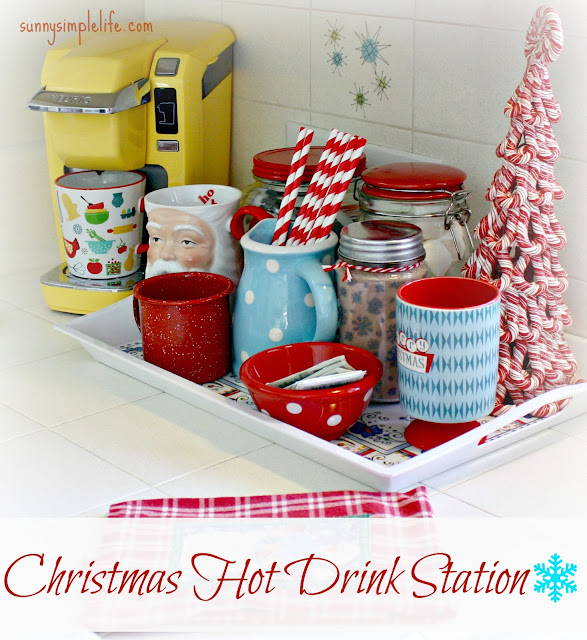Top Winter Holidays Safety Tips for Your Furry Children
Buying gifts, baking cookies, decking the halls - there’s so much hustle and bustle going on during the holidays that it’s easy to become overwhelmed. You try to remember the most important things and not to lose sight of what the holidays are all about - family, friends, and love. Your dog is a member of your family, too, and you show them your love all year round by keeping them safe with healthy dog food, regular veterinarian visits. During Christmastime, there are some special precautions you should take to keep your dog safe in the midst of all the festive fun. Here are the top tips for dog safety at Christmas.
This year we have the new pups, Tugg and Luna to worry about, They are just a year now but very much still in the puppy stage. Here they are in there new holiday sweaters. Don't they look alike?
We miss our big dog Sandy at Christmas. She loved all the Christmas morning hustle and bustle and never stopped playing in all the wrapping. I wonder how these two will do. They have new matching stockings that will be waiting for them on Christmas morning.
Sneakers, our 15 year old cat, is enjoying the Christmas tree. I do like to get gifts under the tree right away as the cats will try and drink from the water and I want to prevent that.
Don’t Give Your Dog Table Scraps
All the delicious food may be one of your favorite parts of the holiday, but it’s also one of the most dangerous for your dog. A dog’s keen sense of smell means they’ll be attracted to many different things, even foods that are toxic or items that are inedible. Alcohol, chocolate (especially dark or unsweetened baking chocolate), and xylitol (a sugar substitute) are poisonous to dogs and can be fatal even in small doses. Other toxic foods that can cause severe illness in dogs are grapes, raisins, macadamia nuts, coffee, tea, and fatty foods (such as gravy and turkey skin).
Do not give your dog bones, either, because they can pierce their mouth, throat, intestinal tract, or stomach lining. Be very cautious with food prep or storage items like aluminum foil, plastic wrap, and meat twine or string. These can choke your dog or cause serious internal damage. Make sure all garbage is placed in an outdoor garbage bin. The best thing you can do is keep your dog out of the kitchen entirely, which will also prevent cooking-related accidents. Utilize a gate or to ensure your dog can’t access the kitchen.
Be Cautious of Your Christmas Tree
While the Christmas tree is the most iconic Christmas decoration, there are many potential hazards related to it that all dog owners should be aware of. For example, your dog can be injured if the Christmas tree falls on them, so consider anchoring it to the wall. If your dog chews on electrical wires, make sure any light strand cords are hidden or out-of-reach, or your dog will be at risk of electrical shock. Glass ornaments, if eaten, can cause serious injury to your dog. Tinsel and garland can also cause blockages or choke your dog.
The water in the stand of your real Christmas tree can become toxic, because stagnant water will breed bacteria, and pesticides used in growing your tree will collect in the stand. Pine needles can also be toxic and cause stomach irritation, so don’t allow your dog to chew on your tree branches (including artificial trees) or eat fallen pine needles. If your dog won’t leave the tree alone, consider purchasing a portable fence, especially because this tool will keep your dog safe without requiring you to alter the look of your tree.
Beware of Other Hazards in the Home
If you have any traditional Christmas plants in your home, make sure your dog cannot get to them. Mistletoe, poinsettias, and holly plants are poisonous to dogs. It’s best to avoid using them as decorations altogether and opt for the artificial versions instead. Potpourri, essential oils, and adhesives/glues are also toxic to dogs. Make sure lit candles are also out-of-reach so your dog won’t accidentally knock them over and start a fire.
When having guests in your home, ask them to keep their medications, gum, and other dangerous substances up high where your dog can’t get them. When you’re cleaning in preparation for guests, be careful not to leave toxic cleaning chemicals out. Remind your guests not to feed your dog or leave their drinks/plates unattended.
As always, a little precaution and common sense will go a long way for keeping your dog safe. Keep the phone numbers to your local animal hospital and your vet’s office handy, and be sure to call at the first sign of distress in your dog. If your dog is acting strangely or is ill, call right away. Keep an eye on your dog as much as possible, but consider keeping them in a closed room that is free of hazards during a busy holiday party. Remember that dogs get overwhelmed by lots of activity, people, and noise much more easily than humans do.







































